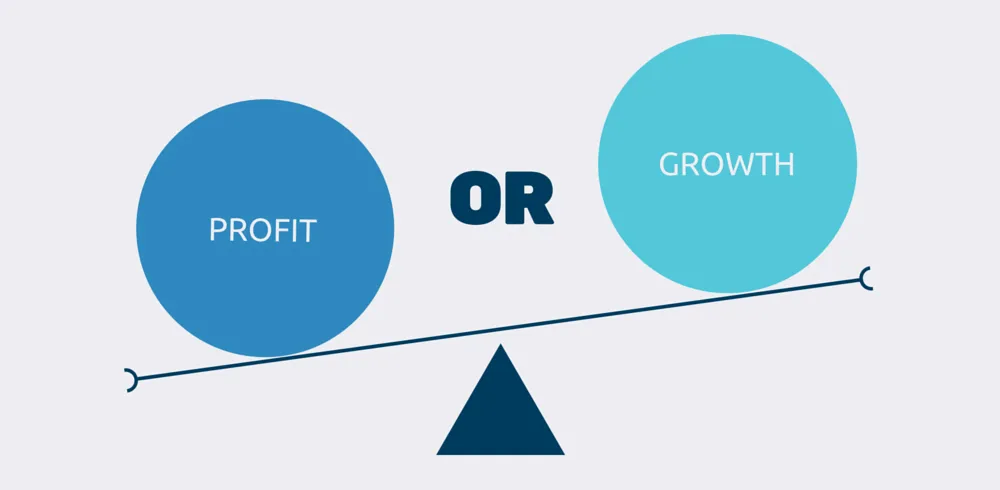Summary
Is debt financing better than equity financing? It depends. There are advantages and disadvantages to both and it's good to understand each method and how it can benefit your company before considering to go with equity or debt financing.
Why Startups Should Raise Money?
According to Y combinator, without startup funding, the vast majority of startups will die. High growth companies almost always need to burn capital to sustain their growth and only a few companies do manage to bootstrap themselves but they're just a small group.

What Is Equity or Debt Financing?
Debt financing is when a company borrows money in order to raise and obtain capital. In exchange for capital, the business must pay off the principal amount with interests in a repayment schedule to the financial provider - be it from banks or financial institutions.Equity financing is when a company offers ownership of the company by selling shares to raise and obtain capital. In exchange for receiving capital from investors, the company is providing an ownership stake in the business. This can be in the form of partnerships or fundraising from angel investors or venture capital (VC) firms.
Should Startups Opt for Equity or Debt?
Now that you're familiar with debt and equity financing, which should your business go for? It depends on a couple of main factors:
1. Time & Effort
One of the benefits of debt financing is how fast you can get access to funds. It's way faster to get capital from lenders than to raise rounds in equity financing where else equity rounds can be long and tiring - the process can take from 6 months or longer to open and close rounding.For debt financing: follow the pre-required documents and submit supporting identification documents and loans can be approved as fast as 24 hours.For equity financing: present, convince and explain business plans and strategies for where the funds will be invested into etc
2. Cost-effective
If a business is confident to perform well immediately with the new fundings, debt financing is a more cost-effective method however along with all kind of debts, it comes with risks. Debt financing downside is the strict repayment schedule the business needs to pay back or failure to do so can result in severe consequences. In an unfortunate event where your company's projection is not accurate and it doesn't grow as expected, this could affect your company's future. For equity financing, As the company is offering part of the business to obtain capital, there is no fixed obligation to repay the money back. Equity financing holds no financial burden on the company.For debt financing: You get to access to capital at a small cost of monthly interest fees.For equity financing: the company can invest the capital in the business for it to grow instead of focusing on paying back capital.
3. Ownership
The main advantage of debt financing is keeping having the full ownership and control of your business. Once the debt is fully repaid, the relationship between the company and the lender ends. Business owners can shape the company according to their vision without having to seek shareholders' approval.The disadvantage to equity financing is when you offer equity to new shareholders, you're giving a percentage of your company to them. You will have to share your success and consult them as new partners before making a business decision. This is a huge downside as you'll have to continuously do stakeholder management and continuously work around their opinions. You will to a certain extent lose your control over the business and decision making will be slower.Raising equity capital will involve a loss of control to a certain extent.
4. Short-term Interests vs Long-term Profits
For debt financing: paying back principal with interestsFor equity financing: share profits and consult with shareholders for any decisionThe big advantage of equity financing is that the investor takes all of the risks. If your company fails, you do not have to pay the money back. You will also have more cash available because there are no loan payments. Finally, investors take a long-term view and understand that growing a business takes time.The downside is large. In order to gain funding, you will have to give the investor a percentage of your company. You will have to share your profits and consult with your new partners any time you make decisions affecting the company. The only way to remove investors is to buy them out, but that will likely be more expensive than the money they originally gave you.(https://www.investopedia.com/financial-edge/1112/small-business-financing-debt-or-equity.aspx)In conclusion, you should ask yourself these questions before deciding on either financing method
- Do you have a good sales strategy to return the capital?
- Do you need just capital or a partner?
- How open are you to sharing the ownership of your business?
- Are you confident is paying off the debt?
Which Funding Method Should I Choose?
Often you will not have a choice. Formal equity financing is difficult to secure especially for small, early-stage startups. Venture capitalists are looking for companies with global reach. Angel investors, those who fund on a smaller scale, are often looking to invest a minimum of $300,000 and possibly a 50% stake in the company, especially if it is in the very beginning stages, according to an article released by Entrepreneur.com. If your company is a startup serving a local market and does not need large-scale funding, debt financing is probably your best, and perhaps only, option. Larger startups often combine debt and equity financing to reduce the downside of both types.
The Bottom Line
The type of financing you seek depends largely on your startup. If you are just getting started, consider a loan from family, friends or a bank. As you grow and reach a larger market, equity funding may become a more viable option if you are willing to give up a portion of your company. (For related reading, see "Should a Company Issue Debt or Equity?")









%201.webp)


.webp)